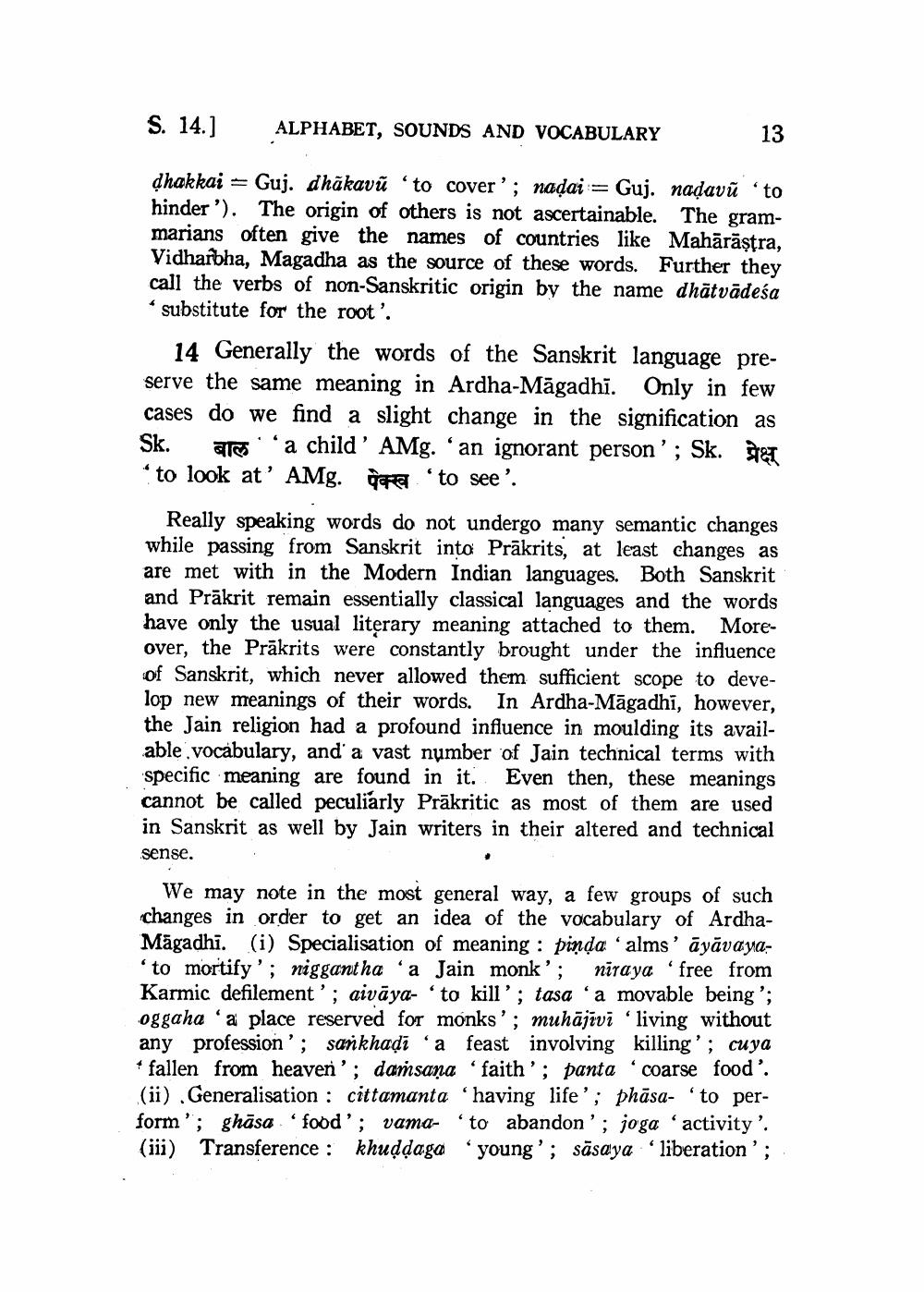________________
S. 14.]
ALPHABET, SOUNDS AND VOCABULARY
13
dhakkai = Guj. dhãkavũ to cover'; nadai = Guj. nadavũ 'to hinder'). The origin of others is not ascertainable. The grammarians often give the names of countries like Mahārāstra, Vidharbha, Magadha as the source of these words. Further they call the verbs of non-Sanskritic origin by the name dhätvādeśa * substitute for the root'.
14 Generally the words of the Sanskrit language preserve the same meaning in Ardha-Māgadhi. Only in few cases do we find a slight change in the signification as Sk. art. 'a child' AMg. 'an ignorant person’; Sk. Ez * to look at’ AMG. a 'to see'.
Really speaking words do not undergo many semantic changes while passing from Sanskrit into Prākrits, at least changes as are met with in the Modern Indian languages. Both Sanskrit and Prākrit remain essentially classical languages and the words have only the usual literary meaning attached to them. Moreover, the Prākrits were constantly brought under the influence of Sanskrit, which never allowed them sufficient scope to develop new meanings of their words. In Ardha-Māgadhi, however, the Jain religion had a profound influence in moulding its available vocabulary, and a vast number of Jain technical terms with specific meaning are found in it. Even then, these meanings cannot be called peculiarly Prākritic as most of them are used in Sanskrit as well by Jain writers in their altered and technical sense.
We may note in the most general way, a few groups of such changes in order to get an idea of the vocabulary of ArdhaMāgadhi. (i) Specialisation of meaning: pinda 'alms' āyāvaya
to mortify'; niggantha 'a Jain monk'; niraya 'free from Karmic defilement'; aivāya- 'to kill'; tasa 'a movable being '; oggaha 'a place reserved for monks'; muhājivi 'living without any profession'; sankhadi 'a feast involving killing'; cuya * fallen from heaven'; darsana 'faith'; panta coarse food'. (ii) . Generalisation : cittamanta “having life'; phāsa- 'to perform'; ghāsa. 'food'; vama- 'to abandon'; joga 'activity'. (iii) Transference : khuddaga 'young'; sāsaya liberation';;




